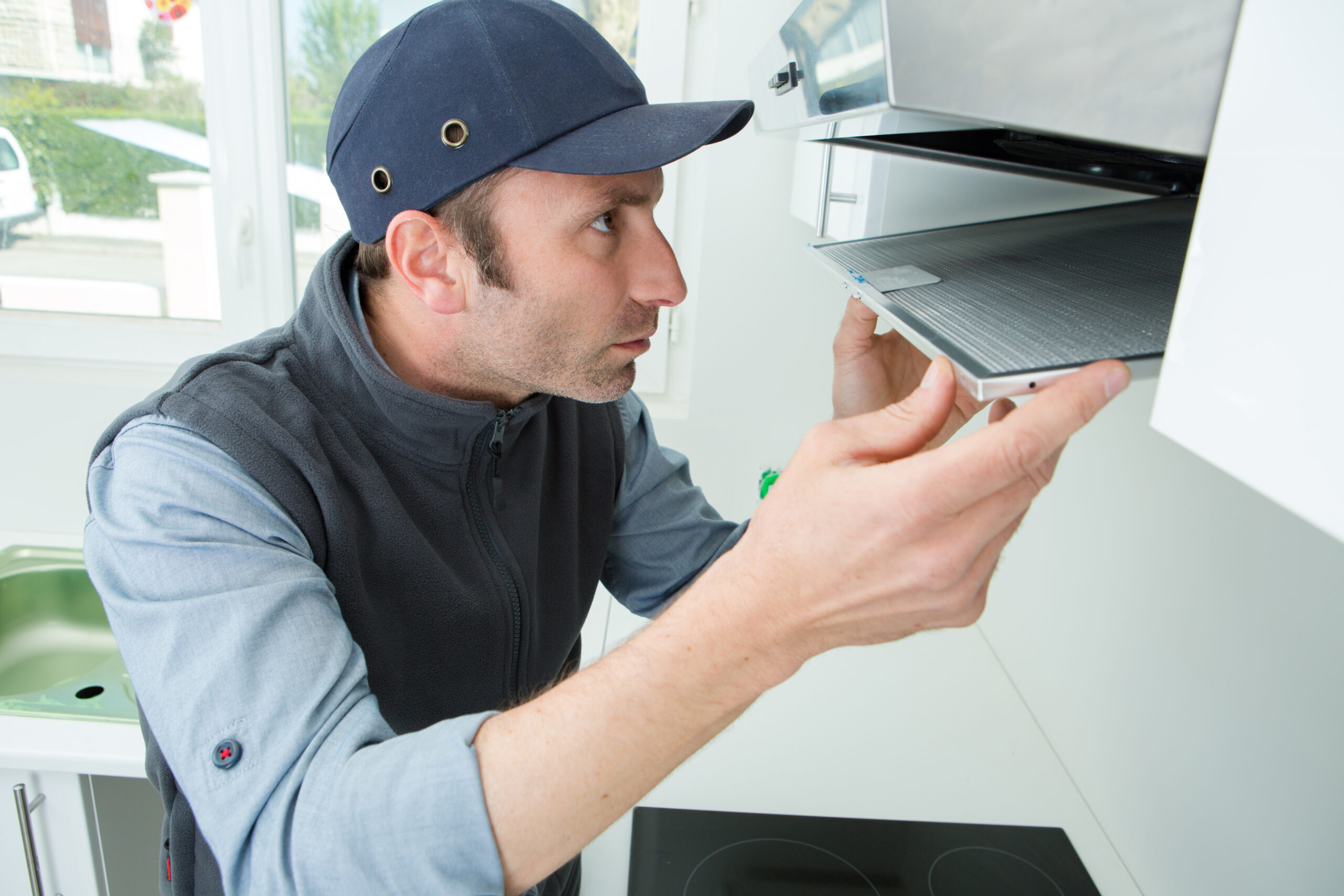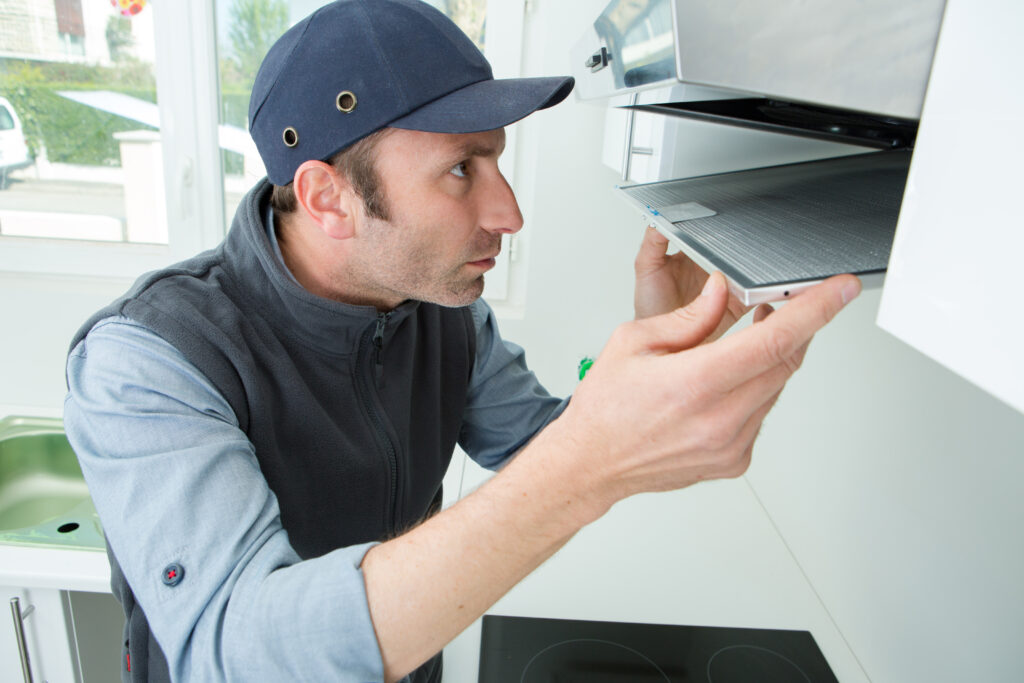Easiest Method to Clean Organic Matter From Kitchen Exhaust Systems

Ontario-wide Kitchen Exhaust and Hood Cleaning – Best prices and service guaranteed.
Kitchen exhaust systems play a crucial role in maintaining a clean and healthy environment in commercial kitchens. However, over time, these systems can accumulate a significant amount of organic matter, such as grease, oil, and food particles. This buildup not only poses a fire hazard but also reduces the efficiency of the exhaust system. Therefore, it is essential to regularly clean and maintain kitchen exhaust systems to ensure their optimal performance. In this article, we will explore the easiest and most effective method to clean organic matter from kitchen exhaust systems.
The Importance of Cleaning Kitchen Exhaust Systems
Before diving into the cleaning process, let’s understand why it is crucial to clean kitchen exhaust systems regularly. Here are some key reasons:
- Fire Safety: The accumulation of grease and oil in kitchen exhaust systems can become a potential fire hazard. Grease is highly flammable, and if ignited, it can quickly spread throughout the exhaust system and even the entire kitchen. Regular cleaning helps remove this flammable material, reducing the risk of fire.
- Air Quality: A dirty kitchen exhaust system can release harmful pollutants and odors into the air. These pollutants can affect the health and well-being of kitchen staff and customers. Cleaning the system ensures that the air circulating in the kitchen remains clean and free from contaminants.
- Efficiency: When organic matter accumulates in the exhaust system, it obstructs the airflow, reducing the system’s efficiency. This can lead to increased energy consumption and decreased performance. Regular cleaning helps maintain the optimal airflow and efficiency of the system.
Ontario-wide Kitchen Exhaust and Hood Cleaning – Best prices and service guaranteed.
The Easiest Method to Clean Kitchen Exhaust Systems
Now that we understand the importance of cleaning kitchen exhaust systems, let’s explore the easiest and most effective method to remove organic matter from these systems:
1. Inspection and Preparation
The first step in cleaning a kitchen exhaust system is to conduct a thorough inspection and prepare the necessary tools and equipment. Here’s what you need to do:
- Inspect the entire exhaust system, including the hood, filters, ductwork, and exhaust fan. Look for any signs of grease buildup, blockages, or damage.
- Ensure you have the appropriate personal protective equipment (PPE), such as gloves, goggles, and a respirator, to protect yourself from the cleaning chemicals and fumes.
- Gather the necessary cleaning tools, including scrapers, brushes, degreasers, and a pressure washer.
Ontario-wide Kitchen Exhaust and Hood Cleaning – Best prices and service guaranteed.
2. Cleaning the Hood and Filters
The hood and filters are the primary areas where grease and oil accumulate. Follow these steps to clean them effectively:
- Remove the filters from the hood and soak them in a degreasing solution. Allow them to sit for a while to loosen the grease.
- While the filters are soaking, use a scraper or brush to remove any loose debris from the hood surface.
- After the filters have soaked, scrub them gently with a brush to remove the remaining grease. Rinse them thoroughly with water and let them dry before reinstalling.
- Clean the hood surface using a degreaser and a scrub brush. Pay close attention to the corners and crevices where grease tends to accumulate.
Ontario-wide Kitchen Exhaust and Hood Cleaning – Best prices and service guaranteed.
3. Cleaning the Ductwork
The ductwork is where the majority of the organic matter accumulates. Cleaning the ductwork requires a more thorough approach:
- Start by removing any accessible sections of the ductwork to gain better access for cleaning.
- Use a scraper or brush to remove the heavy grease buildup from the duct surfaces. Be careful not to damage the ductwork during this process.
- Apply a degreaser to the duct surfaces and let it sit for a while to break down the remaining grease.
- Use a pressure washer with a nozzle designed for duct cleaning to flush out the loosened grease and debris. Ensure that the pressure is appropriate to avoid damaging the ductwork.
- Reassemble the ductwork and ensure all connections are secure.
4. Cleaning the Exhaust Fan
Ontario-wide Kitchen Exhaust and Hood Cleaning – Best prices and service guaranteed.
The exhaust fan is another critical component of the kitchen exhaust system that requires regular cleaning. Here’s how to clean it effectively:
- Turn off the power to the exhaust fan before starting the cleaning process.
- Remove the fan cover and clean it using a degreaser and a brush.
- Inspect the fan blades for any grease buildup or damage. Use a scraper or brush to remove the grease carefully.
- Wipe down the fan motor and other accessible parts with a damp cloth.
- Reinstall the fan cover and ensure it is securely in place.
Ontario-wide Kitchen Exhaust and Hood Cleaning – Best prices and service guaranteed.
Cleaning organic matter from kitchen exhaust systems is essential for fire safety, air quality, and system efficiency. By following the easiest method outlined in this article, you can effectively remove grease, oil, and food particles from the hood, filters, ductwork, and exhaust fan. Regular cleaning and maintenance of kitchen exhaust systems will not only ensure a safe and healthy environment but also prolong the lifespan of the system. Remember, prevention is always better than dealing with the consequences of neglecting proper cleaning and maintenance.
Learn more about “How to Clean Organic Matter From Kitchen Exhaust Systems” here.
Frequently Asked Questions About The Easiest Method to Clean Organic Matter From Kitchen Exhaust Systems

Can I use common kitchen cleaning agents to remove organic debris from the exhaust system?
Some common kitchen cleaning agents can help break down light organic residue. However, kitchen exhaust systems often have thick and hardened grease deposits that require specialized degreasing agents. It’s crucial to use solutions specifically designed for exhaust systems to ensure effective cleaning and safety.
How can I simplify the process of cleaning my kitchen exhaust system regularly?
To make the cleaning process more straightforward:
Routine Maintenance: Regular light cleaning can prevent the buildup of excessive organic matter, simplifying the more thorough cleanings.
Accessible Design: Ensure the system is installed in a way that most of its parts are easily accessible.
Use of Filters: Effective filters can trap a significant amount of organic debris, reducing the frequency and intensity of deep cleanings.
Professional Assistance: While there’s a cost involved, professional services have the tools and expertise to clean efficiently and quickly.
Are there any automated tools or gadgets to simplify exhaust cleaning?
Yes, there are several tools available:
Rotary Brushes: These motorized brushes can scrub the inner surfaces of ducts and vents more effectively than manual brushing.
Steam Cleaners: A steam cleaner can dissolve and wash away grease using high-temperature steam.
Robotic Cleaners: Some advanced setups use robotic cleaners that can navigate ductwork, scrubbing, and cleaning as they go.
However, even with these tools, periodic manual inspections and touch-up cleanings are crucial.
I’ve heard about enzyme-based cleaners for exhaust systems. Are they an easy solution?
Enzyme-based cleaners can be part of an easier solution. They contain microorganisms that break down organic matter over time. When used regularly, they can reduce the buildup of grease and other debris, simplifying the cleaning process. However, they’re not a replacement for traditional cleaning methods but rather a supplement. Regular thorough cleaning is still necessary, but enzyme treatments can extend the time between these cleanings.
While seeking the easiest method, it’s essential to remember that kitchen exhaust systems require meticulous cleaning to ensure safety, proper functionality, and regulatory compliance. Always prioritize thoroughness over simplicity.
- Easiest Method to Clean Organic Matter From Kitchen Exhaust Systems
- hood cleaning
- kitchen exhaust cleaning
- restaurant hood cleaning







